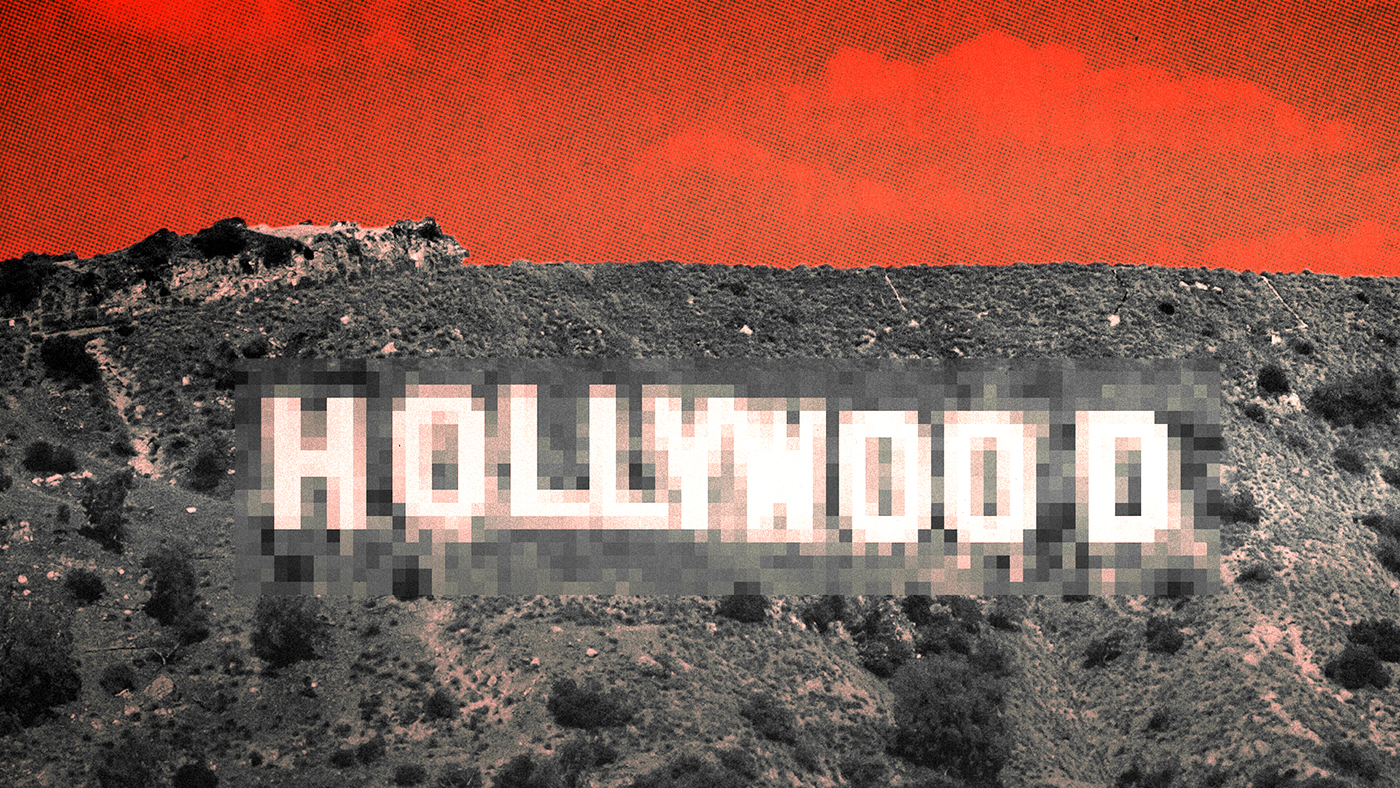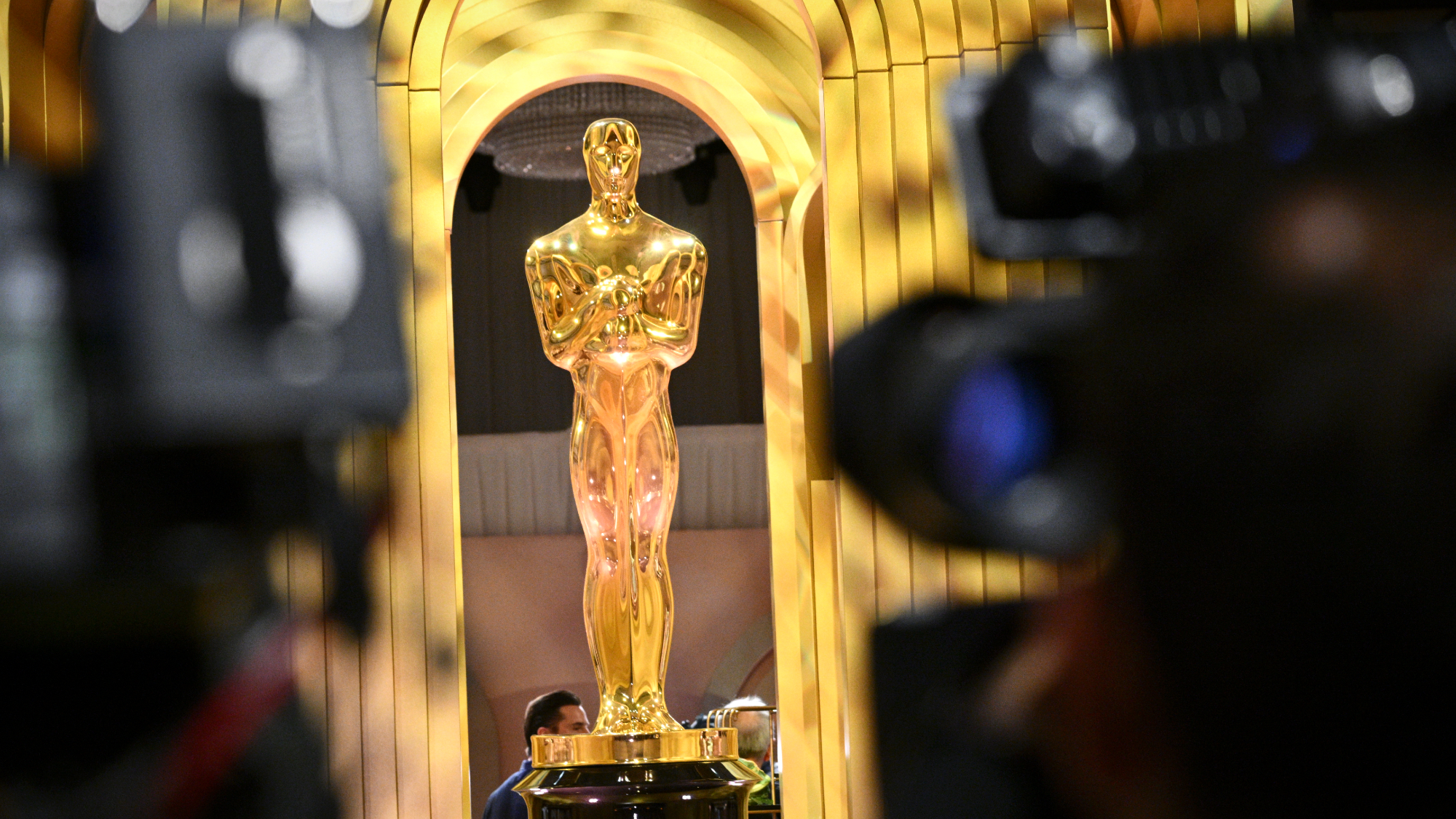The Barbie ban and China’s hold over Hollywood
Vietnam has stopped the film’s release over a map featuring the controversial ‘nine-dash line’

A free daily email with the biggest news stories of the day – and the best features from TheWeek.com
You are now subscribed
Your newsletter sign-up was successful
Vietnam has banned the new “Barbie” film because it features a map showing China’s claim to the South China Sea.
The map appears for only a split second on the screen, but it caught the attention of Vietnam’s National Film Evaluation Council for including the controversial “nine-dash line”, which is used by China to mark its claim to most of the sea.
Warner Bros claimed the map is a “childlike crayon drawing… not intended to make any type of statement”. But the dotted line has led to protests from Brunei, Malaysia, the Philippines and Taiwan, as well as Vietnam where the film was banned. US Republican senator Ted Cruz also weighed in on the controversy, accusing the film of “pushing Chinese propaganda”.
The Week
Escape your echo chamber. Get the facts behind the news, plus analysis from multiple perspectives.

Sign up for The Week's Free Newsletters
From our morning news briefing to a weekly Good News Newsletter, get the best of The Week delivered directly to your inbox.
From our morning news briefing to a weekly Good News Newsletter, get the best of The Week delivered directly to your inbox.
But it is no secret that Hollywood has “long tried to ingratiate itself with China’s censors”, said The Economist. The Chinese film industry is worth some $4.6 billion, and has been “vying with America to be the biggest film market” for some time.
How influential is China in Hollywood?
China has been “critical” to the global box office success of many of Hollywood’s most famous contemporary films, said Time. Studios are known to “appease” Beijing’s “stringent” censors in order not to be shut out of the lucrative market.
Hundreds of films and shows have been banned in the country after they were deemed inappropriate for release in China – and many that did hit theatres “were only released after undergoing a series of alterations”, said the Daily Mail. Indeed, some of Hollywood’s best-known films have had to undergo significant changes to be shown in China. The practice goes back decades.
The 1997 blockbuster “Titanic” had to “remove scenes that contained violence or nudity” to be shown to a Chinese audience, while 2007’s “Pirates of the Caribbean: At World’s End” minimised the screen time given to Chinese villains to get the film past the country’s regulators. And more recently, the popular Queen biopic “Bohemian Rhapsody” was “only allowed to come out in China after it eliminated any suggestion or scene that depicted Freddie Mercury as gay”, said the paper.
A free daily email with the biggest news stories of the day – and the best features from TheWeek.com
What is the latest controversy about?
Vietnam said it had banned the cinematic distribution of Greta Gerwig’s film “Barbie” over the display of a map that includes the “nine-dash-line”. This is a disputed maritime border that China has used to lay claim to the South China Sea, despite its claim being rejected by an international tribunal at The Hague in 2016.
The Philippines considered banning the film too, but has since concluded that the map was “cartoonish” and was therefore not a representation of the nine-dash-line.
This is not the first time, however, that Vietnam and other South Asian countries have banned Hollywood films and TV shows over the issue, added Vox.
Last year, both the Philippines and Vietnam banned screenings of Sony’s action-adventure film “Uncharted” due to a brief scene featuring the disputed boundary. And in 2019, the Philippines and Malaysia halted the domestic distribution of the DreamWorks animated movie “Abominable” after the filmmakers refused to delete a scene depicting the nine-dash line. Vietnam went as far as imposing fines on the film’s distributor, even though the movie had already been in theatres for over a week.
In 2018, Vietnam also censored a fleeting shot in the film “Crazy Rich Asians” of a designer handbag with a map showing China’s claimed islands in the South China Sea.
Why is Vietnam pushing back?
It is these “repeated instances of the same issue” that “raise questions” about Hollywood’s relationship with China, said Time. And the “growing resistance” from South Asian countries to even subtle political messaging in films and popular culture “demonstrates a heightened vigilance against Chinese encroachment”.
And while it may leave countries open to accusations of “petty oversensitivity”, drawing attention to the issue is exactly the point, suggested Richard Heydarian, a political analyst and senior lecturer in Asian affairs at the University of the Philippines, speaking to Time.
“Sunlight is the best disinfectant,” said Heydarian. “Vietnam is reminding the world that Chinese state propaganda should have no place in supposedly innocuous productions like Barbie movies. It just doesn’t make sense.”
What about China’s influence on Hollywood?
Last year, the release of “Top Gun: Maverick” sparked a heated controversy over the influence of Chinese investors on Hollywood. Viewers noticed that the flags of Taiwan and Japan were conspicuously absent from Captain Pete “Maverick” Mitchell’s flight jacket in the film’s trailers. This was done, it emerged, seemingly to appease Chinese investor Tencent.
But the decision was swiftly criticised in the United States and after Tencent reportedly withdrew its investment, the flags were restored in the final version of the film.
Since the controversy, the Pentagon has updated its rules for working with filmmakers, according to Politico. Any studios looking for help from the US Department of Defense to make their film will now “have to guarantee that you won’t let China censor your movie first”.
The updated rules mean that it will not assist directors who “plan to comply or will likely comply with censorship demands from the Chinese government in order to distribute their movie there”, reported the political news site.
Sorcha Bradley is a writer at The Week and a regular on “The Week Unwrapped” podcast. She worked at The Week magazine for a year and a half before taking up her current role with the digital team, where she mostly covers UK current affairs and politics. Before joining The Week, Sorcha worked at slow-news start-up Tortoise Media. She has also written for Sky News, The Sunday Times, the London Evening Standard and Grazia magazine, among other publications. She has a master’s in newspaper journalism from City, University of London, where she specialised in political journalism.
-
 How the FCC’s ‘equal time’ rule works
How the FCC’s ‘equal time’ rule worksIn the Spotlight The law is at the heart of the Colbert-CBS conflict
-
 What is the endgame in the DHS shutdown?
What is the endgame in the DHS shutdown?Today’s Big Question Democrats want to rein in ICE’s immigration crackdown
-
 ‘Poor time management isn’t just an inconvenience’
‘Poor time management isn’t just an inconvenience’Instant Opinion Opinion, comment and editorials of the day
-
 Microdramas are booming
Microdramas are boomingUnder the radar Scroll to watch a whole movie
-
 The biggest box office flops of the 21st century
The biggest box office flops of the 21st centuryin depth Unnecessary remakes and turgid, expensive CGI-fests highlight this list of these most notorious box-office losers
-
 The 8 best superhero movies of all time
The 8 best superhero movies of all timethe week recommends A genre that now dominates studio filmmaking once struggled to get anyone to take it seriously
-
 Josh D’Amaro: the theme park guru taking over Disney
Josh D’Amaro: the theme park guru taking over DisneyIn the Spotlight D’Amaro has worked for the Mouse House for 27 years
-
 Golden Globes affirm ‘One Battle,’ boost ‘Hamnet’
Golden Globes affirm ‘One Battle,’ boost ‘Hamnet’Speed Read Comedian Nikki Glaser hosted the ceremony
-
 The most anticipated movies of 2026
The most anticipated movies of 2026The Week Recommends If the trailers are anything to go by, film buffs are in for a treat
-
 Oscars jump to YouTube after decades at ABC
Oscars jump to YouTube after decades at ABCSpeed Read The awards show will be broadcast worldwide on YouTube starting in 2029
-
 Son arrested over killing of Rob and Michele Reiner
Son arrested over killing of Rob and Michele ReinerSpeed Read Nick, the 32-year-old son of Hollywood director Rob Reiner, has been booked for the murder of his parents